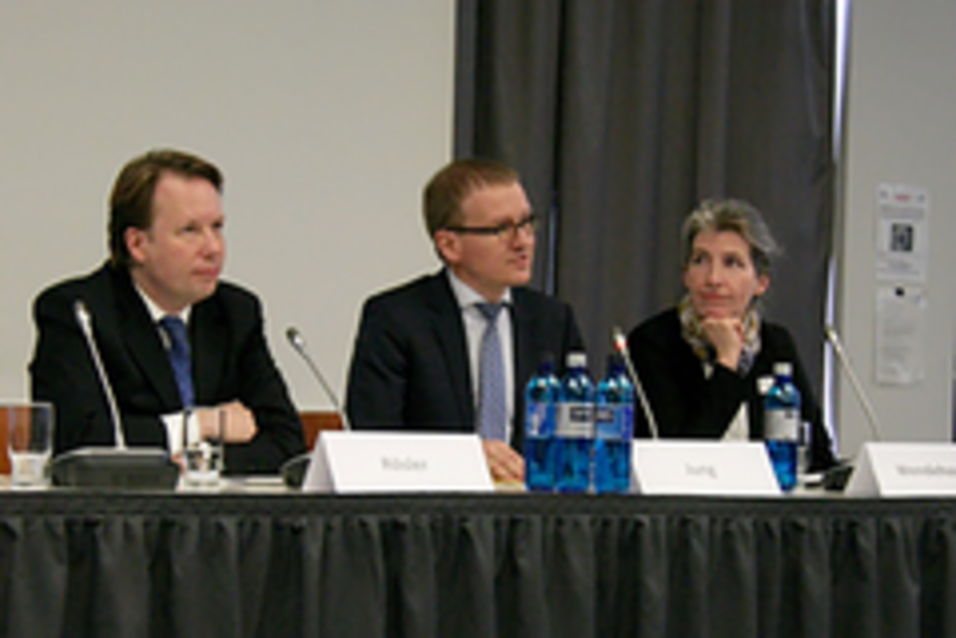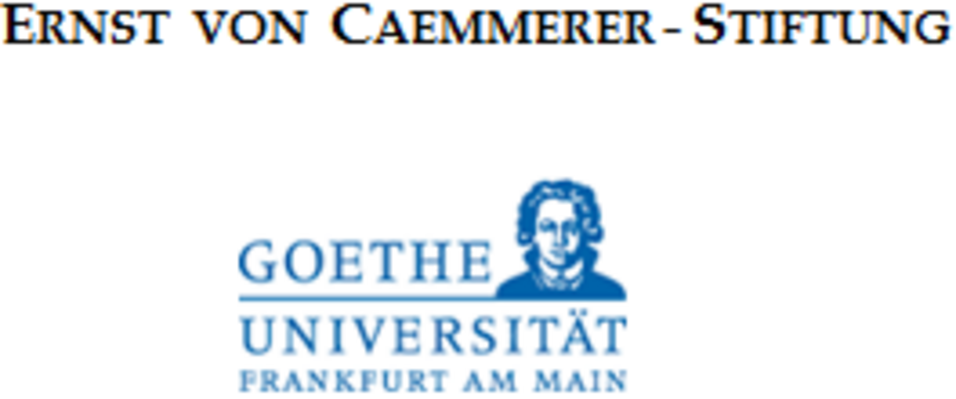The event brought together distinguished speakers from several countries and about 60 participants.
In his introductory remarks, Uwe Blaurock (Freiburg) pointed to the fact that unification of sales law is an ongoing process which does not stop with legislative activities but also includes the efforts of courts, arbitral tribunals and academia to secure uniformity in the application of law. The Conference focused on different aspects of these efforts and extended to both the United Nations Convention on Contracts for the International Sale of Goods (CISG) and EU private law.
The first session took on the tradition of Ernst Rabel and Ernst von Caemmerer and resorted to the role of comparative law as a means to unify law. Thomas Kadner Graziano (Geneva) analysed recent trends on a national and international level and made a strong case for the utilisation of comparative law in interpreting both national and uniform sales law. From his point of view, such an approach does not compromise the autonomous interpretation of international sales law. His positions were responsively taken up by the audience and lively discussions ensued.
Experiences with a uniform application of the CISG were the subject of the second session. Franco Ferrari (New York) gave an in-depth analysis of different practices of national courts that may compromise an autonomous application. He identified several versions of the 'homeward trend' under which courts see the CISG through the eyes of their own national law or even substitute lex fori for it. But he also introduced the rather new phenomenon of an 'outward trend' according to which courts interpret the uniform law with reference to a foreign domestic law – a development, which is also to be criticised in Ferrari’s opinion. Thereafter, Burghard Piltz (Hamburg) reported on the contribution of arbitral tribunals to a unified interpretation of the CISG. He explained that such a contribution is rather limited due to the focus of arbitral tribunals on solving the dispute at hand. Therefore, the preliminary issue of the circumstances under which the CISG is applied by the tribunals took centre stage and was discussed in the light of several international rules of arbitration.
The third session focused on the perspective of EU sales and contract law. Hannes Rösler (Siegen) analysed different types of a 'horizontal' cooperation between Member States’ courts in applying the supranational law. This cooperation can supplement the preliminary reference procedure to the CJEU in securing a uniform application of law. However, Rösler explained that the full potential of such coordination is not yet tapped which is why he encouraged further steps in this direction. The final presentation was given by then ELI Vice-President Christiane Wendehorst (Vienna) who discussed recent developments in EU sales law and their implications for courts. She gave an overview of the pros and cons of the new directive proposals on online sales of tangible goods and on the supply of digital content. In addition, Wendehorst elaborated on the challenges that would be posed to courts by the principle of full harmonisation and by the multi-dimensionality of contracts on digital content.
In his closing remarks, Felix Maultzsch (Frankfurt am Main) pointed out common challenges for a unified application of both the CISG and EU private law but also differences that result from the respective institutional frameworks of these sets of rules.
The organisers would like to thank all participants for their presentations and discussions which provided fruitful insights. A final version of the Conference proceedings will be published in the series of the Ernst von Caemmerer Foundation.


